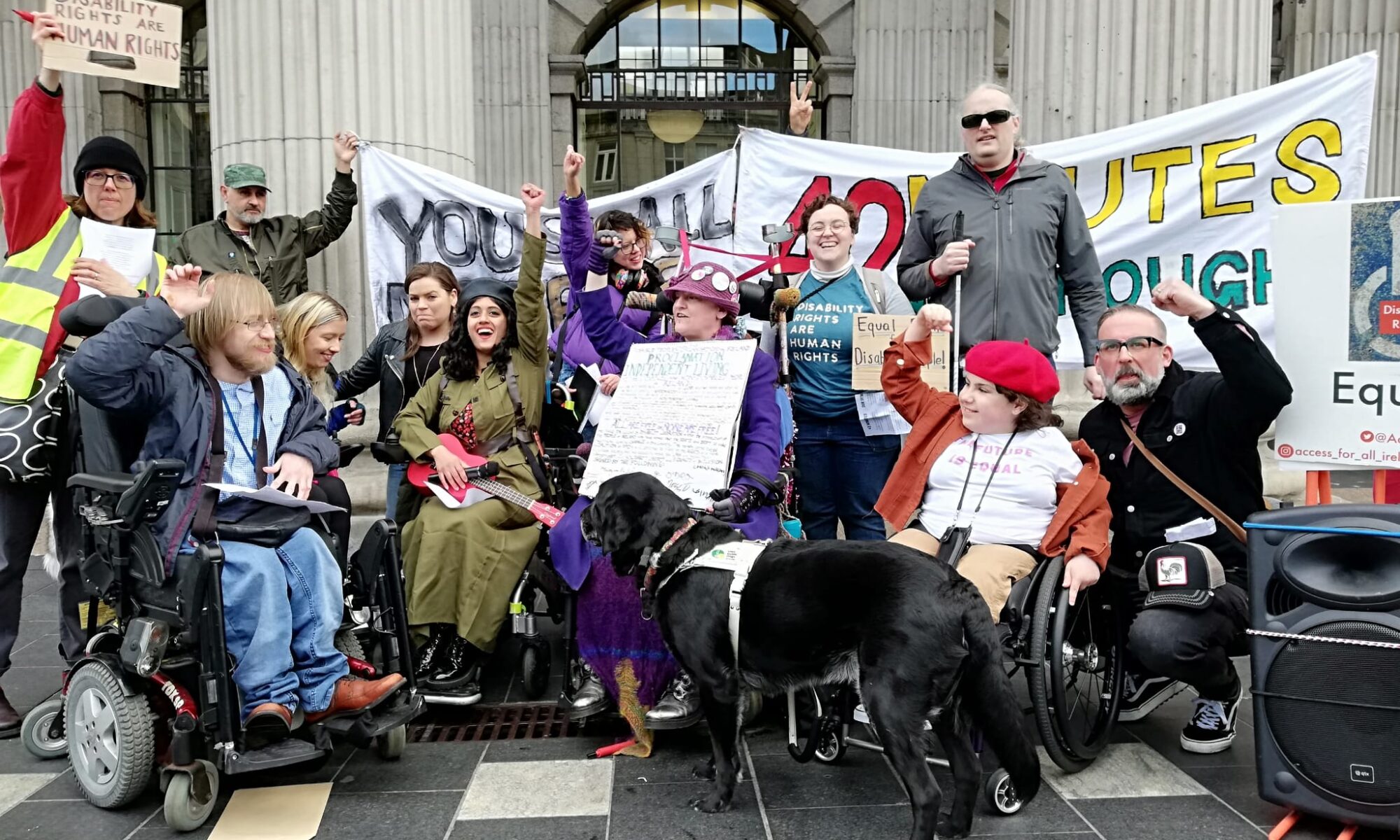Disability Power Ireland is a grassroots, cross-impairment DPO (Disabled People’s Organisation) run by and for disabled people.
Our mission is to nurture the disability rights movement, to create visibility for our marginalised community, and bring disabled joy to the streets with Ireland’s first Disability Pride and Power Parade and Festival. Our second parade and third festival will take place this Saturday 20th July 2024.
We want the world to know we are here, and to see us for who we really are: powerful, ordinary, resilient, capable and desirous of anything and everything, if society will make the changes we need to accommodate our existence.
For more information or to get involved, contact disabilitypowerireland@gmail.com and sign up as a member here.
Mission Statement
We are a new grassroots, cross-impairment DPO (Disabled Persons’ Organisation, run by and for disabled people) whose mission is to enhance the visibility and inclusion of the disabled community.
We aim to do this through an annual Disability Pride and Power Festival for Disability Pride Month in July, and a Disability Pride and Power Parade, from July 2023.
We have a particular focus on the arts and culture as powerful vehicles for changing public perception about what it means to be disabled and cementing disabled identities.
Our Aims:
To increase the visibility of the disabled community, who are 10-15% of the population nationally and globally, and the world’s largest minority group, yet remain underrepresented in all spheres of society.
To change public perception of what it means to be disabled and spread awareness of the social model and affirmation models of disability, steering away from medical, charity and tragedy models
To celebrate and connect the disabled community and normalize disability as a natural and beautiful part of human diversity.
To celebrate diversity of experience in the disabled community itself in the range of impairments including invisible disabilities, and those further marginalized as disabled LGBT+, travellers, migrants and people of colour, women and gender minorities, homeless and older people.
To counteract social stigma and internalised shame
To reduce isolation and provide opportunities to increase the participation of disabled people themselves in the disability sector, in arts, culture and society (“Nothing About Us Without Us”)
To combine art and protest
To encourage positive associations with being disabled and increase self-acceptance, dignity and pride amongst disabled people in embracing all aspects of who they are. The less resistance there is to identifying as disabled, the greater involvement there will be in the disability rights movement.
